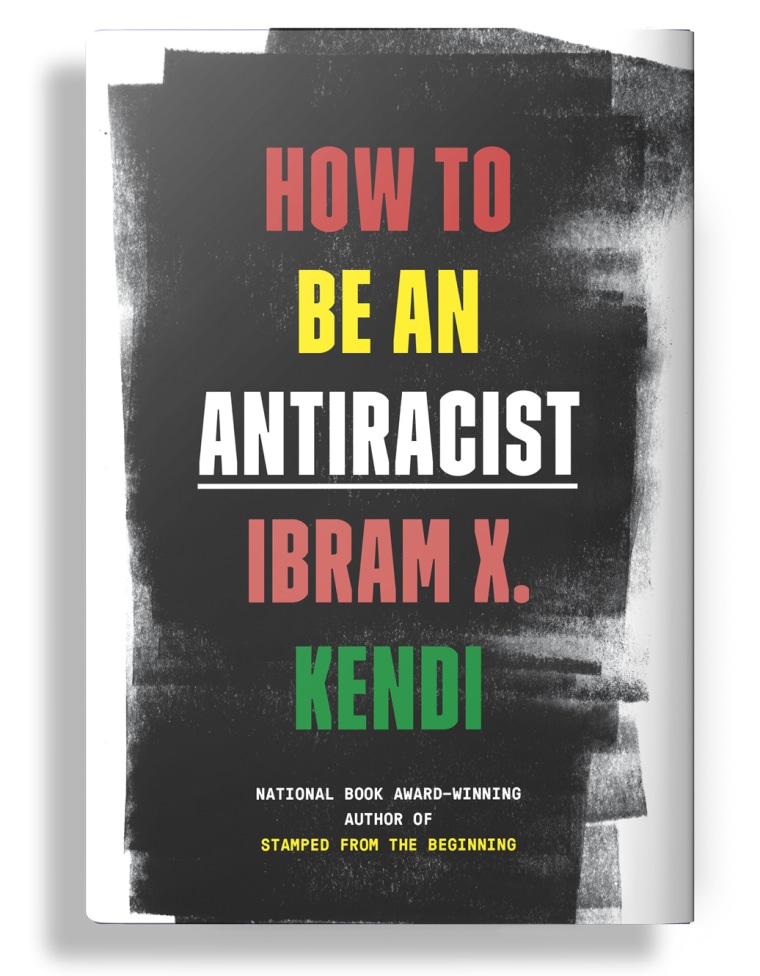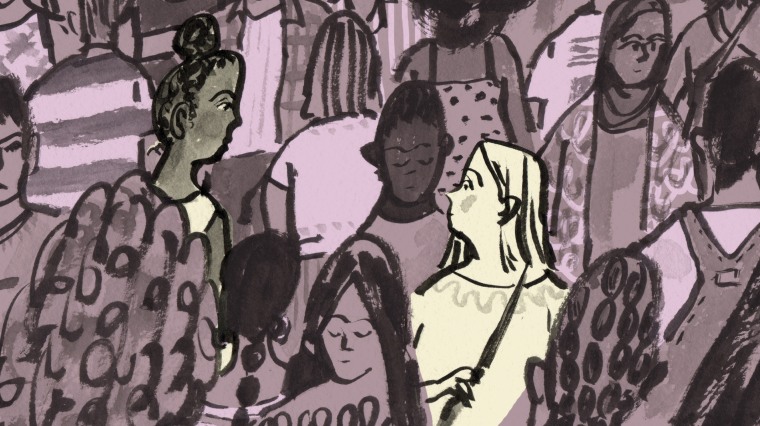American University professor Ibram X. Kendi's new book, “How to Be an Antiracist,” begins with an account of how he once delivered a racist speech.
Kendi participated in Prince William County’s 2000 Martin Luther King Jr. oratorical contest when he was in high school. In his speech, he chastised black youth for being unmotivated and unambitious. "They think it's OK to climb the high tree of pregnancy!" he remembers telling the crowd. "They think it's OK to confine their dreams to sports and music!"
Looking back now, Kendi recognizes how his words echoed the idea that black people in American society are to blame when racism give them fewer options for career advancement.
Looking back now, Kendi recognizes how his words echoed the idea that black people in American society are to blame when racism gives them fewer options for career advancement. It isn’t necessarily surprising that he would have internalized racism — such ideas are pervasive in the United States. It is precisely for this reason, he says, that Americans have to be active in their efforts to confront and combat racist thinking, including their own.
In his first book, 2017's “Stamped From the Beginning,” Kendi chronicled the history of those racist ideas from the ancient world to the American present. “How to Be an Antiracist” is a more personal work — part memoir, part how-to guide. It chronicles Kendi's efforts to overcome the racist ideas he himself inherited or picked up just by living in America. In doing so, Kendi also seeks to challenge his readers' own racist preconceptions.
The first is the idea that the opposite of "racist" is "not racist." Americans are enamored of the idea that you can avoid being racist by attempting to become color blind, or by passively treating everyone equally. During his brief run for president, for example, Starbucks CEO Howard Schulz insisted, "I honestly don't see color," as a way of demonstrating his lack of personal racism.

But when “a person says that they are colorblind, to me that means they are blind to racism, and they're blind to differences," Kendi told me. People who say they don't see race are, "not seeing the diversity of humanity, whether that diversity is about skin color, or hair texture, or culture."
That's why the title of Kendi's book is “How to Be an Antiracist,” rather than “How to Not Be a Racist.” Some policies are clearly racist — like President Donald Trump's concentration camps at the border. Some policies are antiracist — like the efforts to shut down the camps. To argue that there’s nothing we can individually do about the camps so we should just ignore or accept their existence helps protect and advance racist policies. Racism feeds on denial. It has to be actively opposed.
Centering on antiracism has led Kendi to some surprising conclusions. He argues, for instance, that integration is not always desirable, and not always antiracist. "Some integrationists," he told me, "can't imagine the idea that you would have white kids going into black schools and learning black culture. That's not a goal to them, because they view the white school and white culture as inherently superior. And so integration for them becomes a one-way street, nonwhite to white."
"Instead of trying to integrate everyone and make them the same," Kendi argues, "we should be seeking to give everyone access to all places and spaces and institutions." Ensuring that everyone has equal resources is vital, especially when it comes to school funding. But that doesn’t mean that every space and institution has to reflect national demographics, he adds. “Because if that happened, then in every space, white people will be in the majority, and people of color will be in the minority. And many of the institutions and cultures that have been developed by black people and people of color would basically wither away."
Have a response to a THINK piece that would make a good letter to the editor? Click here to find out how.
Kendi also pushes back against the idea, common among progressives, that it is impossible to be racist against white people. Kendi believes that racist rhetoric directed at white people is racist — not least because it helps entrench racism against black people. "Anti-black racist policies benefit white people in general, obviously, more than black people. But they don't benefit white people equally. Five million poor whites in 1860 did not benefit from slaveholding in the same way as the couple thousand families who held 4 million enslaved black people in 1860," Kendi told me. "So, fundamentally, in 1860, the racist power was slaveholding families. That was racist power."
To challenge racist power in 1860 meant challenging slaveowners, Kendi argues. Racist generalizations about white people can prevent an analysis and focus on racist policies and programs. That protects racist policies — and protecting racist policies harms black people.
This kind of close analysis of racism can be difficult, complicated and painful. Just look at the backlash to The New York Times’ 1619 Project documenting the legacy of slavery in the U.S.
Some commentators have argued that in the run up to the 2020 election, Democrats should avoid talking about racism altogether. Democrats, they say, must emphasize kitchen table issues like health care, or face racist backlash that could help re-elect Trump and strengthen racial divides.
Kendi disagrees. "Racism is a crisis," he told me. "It's an American crisis. It's a crisis of humanity. Just as bigotry is more broadly. Bigotry is one of the lethal weapons ending human existence, like nuclear war and climate change." As the shooting in El Paso painfully illustrated, white supremacist ideology motivates murder. It has to be opposed.
"Racism is an essential feature of Trump's 2020 campaign," Kendi said. "And that means that antiracism must be a central feature of the campaign of whoever is challenging him."
Ignoring racism allows racist ideas and racist policies to flourish. We can be racist or antiracist. Kendi's book tells us there's no third option.

